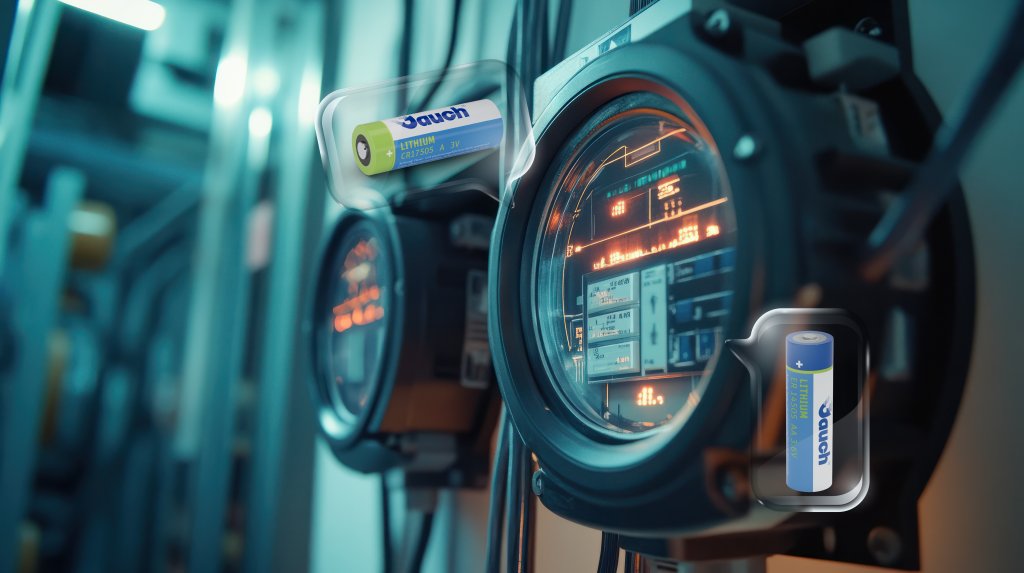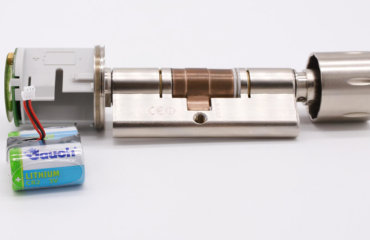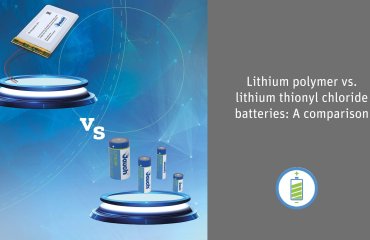
Smart meters have become an integral part of modern energy infrastructure. They measure, store, and transmit consumption data in real time—and do so for many years. For this to work reliably, a power source is needed that is just as durable as the technology itself.
So the question is: Which battery is best suited for smart meters? Two types of batteries have proven particularly effective in this area:
- CR batteries, based on lithium manganese dioxide (Li-MnO₂), are known for their ability to deliver high pulse currents over short periods of time – ideal for applications with occasional energy spikes, such as data transmission.
- ER batteries, based on lithium thionyl chloride (Li-SOCl₂), are characterized by extremely high energy density, very low self-discharge, and a service life exceeding ten years—perfect for continuous, maintenance-free operation.
Comparison table: CR vs. ER in smart meters
| Property | CR battery (Li-MnO₂) | ER battery (Li-SOCl₂) |
| Impulse current capacity | High – ideal for data transmission | Low – can be supplemented by hybrid solutions |
| Energy density | Medium | Very high |
| Lifetime | Medium (depending on load profile) | Over 10 years |
| Self-discharge | Low | Very low |
| Temperature range | Limited (not ideal for extreme conditions) | Wide (up to –55°C to +85°C) |
| Maintenance-free | Yes | Yes |
| Typical application | Short-term load peaks | Long-term, constant energy demand |
Jauch’s recommendation: Li-SOCl₂ with SPC1520
Jauch recommends the use of parallel-connected ER batteries in combination with an SPC1520 for smart meters, especially gas meters. This solution, based on lithium thionyl chloride technology, offers:
- High impulse current capacity, supported by the SPC1520 capacitor
- Stable voltage throughout the battery’s service life
- Reliable performance at extreme temperatures
- Service life of over ten years
Smart meters are only as reliable as their power source. While lithium manganese dioxide may be useful in certain scenarios, lithium thionyl chloride is the best choice for long-lasting, maintenance-free applications in smart metering.


 Deutsch
Deutsch 



